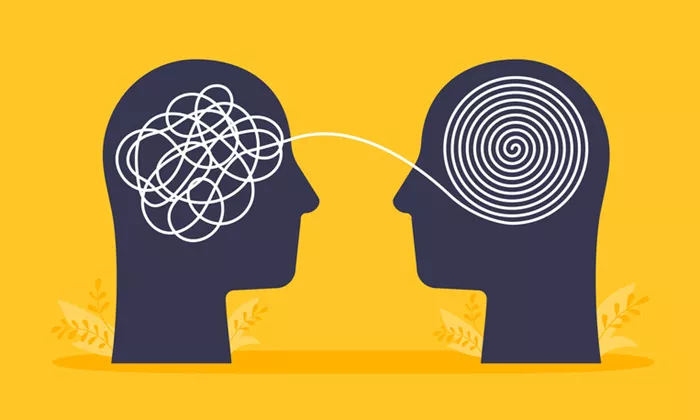Intrusive thoughts can be distressing and overwhelming. These thoughts are sudden, unwanted, and often cause anxiety. They may involve fears, worries, or memories that feel out of your control. If you’ve ever found yourself stuck in a loop of negative thinking, you’re not alone. Many people experience intrusive thoughts, and learning how to manage them can help reduce anxiety and improve mental well-being.
Understanding Intrusive Thoughts
Intrusive thoughts are common and can happen to anyone. They might pop up at unexpected times, making you feel anxious or uneasy. These thoughts are not a reflection of your true desires or intentions. Instead, they are often the result of stress, anxiety, or past trauma.
For example, you might worry about something that hasn’t happened yet, such as an accident or conflict. Or, you might be haunted by a memory or a thought that doesn’t make sense. These thoughts can be troubling, but it’s important to remember that they don’t define you.
Why Do Intrusive Thoughts Happen?
Intrusive thoughts are your brain’s way of processing emotions or stress. They are a natural response to anxiety or tension. When we’re stressed, our minds may fixate on certain ideas or fears, even if they don’t align with our reality.
Sometimes, intrusive thoughts occur because of external triggers. These could be stressful life events, changes, or unresolved emotional issues. Other times, they might come from within, especially if you have a tendency to overthink or ruminate.
It’s also important to know that having intrusive thoughts doesn’t mean you want to act on them. The more you try to suppress or avoid these thoughts, the more likely they are to come back. Instead, finding healthy ways to cope is crucial for reducing their impact.
Strategies to Stop Intrusive Thoughts
1. Challenge Your Thoughts
A good way to stop intrusive thoughts is to challenge their validity. Ask yourself if these thoughts are based on facts or if they’re exaggerated fears. Often, you’ll realize that the thoughts you’re having are not true or helpful. Reframing them can help reduce their power over you.
2. Practice Mindfulness
Mindfulness helps you focus on the present moment rather than getting lost in your thoughts. When an intrusive thought arises, acknowledge it without judgment. Then, gently bring your attention back to your breathing or surroundings. Over time, mindfulness can help you detach from these thoughts and reduce anxiety.
3. Accept the Thoughts
It might sound counterintuitive, but accepting that you have intrusive thoughts can actually help. By accepting them as part of the experience rather than fighting against them, you reduce their intensity. Remind yourself that thoughts are just thoughts, not actions.
4. Focus on Your Body
When anxiety takes over, focusing on your body can be a helpful distraction. You can try deep breathing exercises or progressive muscle relaxation. This helps you calm your nervous system and shift your focus away from the intrusive thought.
5. Set Aside “Worry Time”
If you find yourself constantly anxious about certain thoughts, try setting aside a specific time during the day to worry. During this time, allow yourself to think about whatever is bothering you. The rest of the day, however, is worry-free. This practice can limit the amount of time intrusive thoughts dominate your mind.
6. Use Cognitive Behavioral Therapy (CBT)
Cognitive Behavioral Therapy is a type of therapy that helps individuals recognize and challenge harmful thoughts. It’s highly effective in treating anxiety and intrusive thoughts. A therapist trained in CBT can guide you through exercises to change negative thinking patterns.
Lifestyle Tips to Manage Anxiety
In addition to specific strategies for managing intrusive thoughts, certain lifestyle changes can support overall mental health. Regular physical exercise, a balanced diet, and sufficient sleep all contribute to lowering stress and improving emotional regulation.
Avoiding excessive caffeine and alcohol can also help reduce anxiety. These substances can increase stress levels and contribute to intrusive thoughts.
Social support is another important factor. Talking to friends or family about what you’re experiencing can help you feel understood and less isolated. Don’t hesitate to seek professional help if needed.
When to Seek Professional Help
While everyone experiences intrusive thoughts from time to time, chronic or severe cases may require professional help. If your thoughts are interfering with daily life or causing significant distress, it might be time to consult a therapist or counselor. They can provide personalized treatment options, such as Cognitive Behavioral Therapy, medication, or other therapeutic interventions.
It’s important to remember that you don’t have to deal with intrusive thoughts alone. Support is available, and with the right tools, you can regain control over your thoughts and reduce anxiety.
Frequently Asked Questions
1. Can intrusive thoughts be a sign of a mental health condition?
While intrusive thoughts are common, if they’re frequent and cause significant distress, they may be linked to conditions like anxiety, OCD, or PTSD. Consulting a mental health professional can help identify underlying issues.
2. Are intrusive thoughts normal?
Yes, they are normal. Most people experience them at some point. What matters is how you respond to them. Learning to manage them is key.
3. Can mindfulness really help with intrusive thoughts?
Yes, mindfulness helps you become more aware of your thoughts and detach from them. By focusing on the present moment, you can reduce the power of intrusive thoughts.
4. How can I stop myself from overthinking?
Overthinking often fuels anxiety and intrusive thoughts. Practice grounding techniques, focus on the present, and set aside time for worry, as mentioned above.
In conclusion, intrusive thoughts can be unsettling, but they don’t have to control your life. By learning coping strategies and focusing on self-care, you can reduce anxiety and regain a sense of calm. You’re not alone in this journey, and help is available when needed.
Related topics:
- Proven Tips To Control Anxiety-Induced Skin Picking
- Finding Relief: Exploring Medication Options for Racing Thoughts and Anxiety
- What Are Types of Anxiety Disorder?


